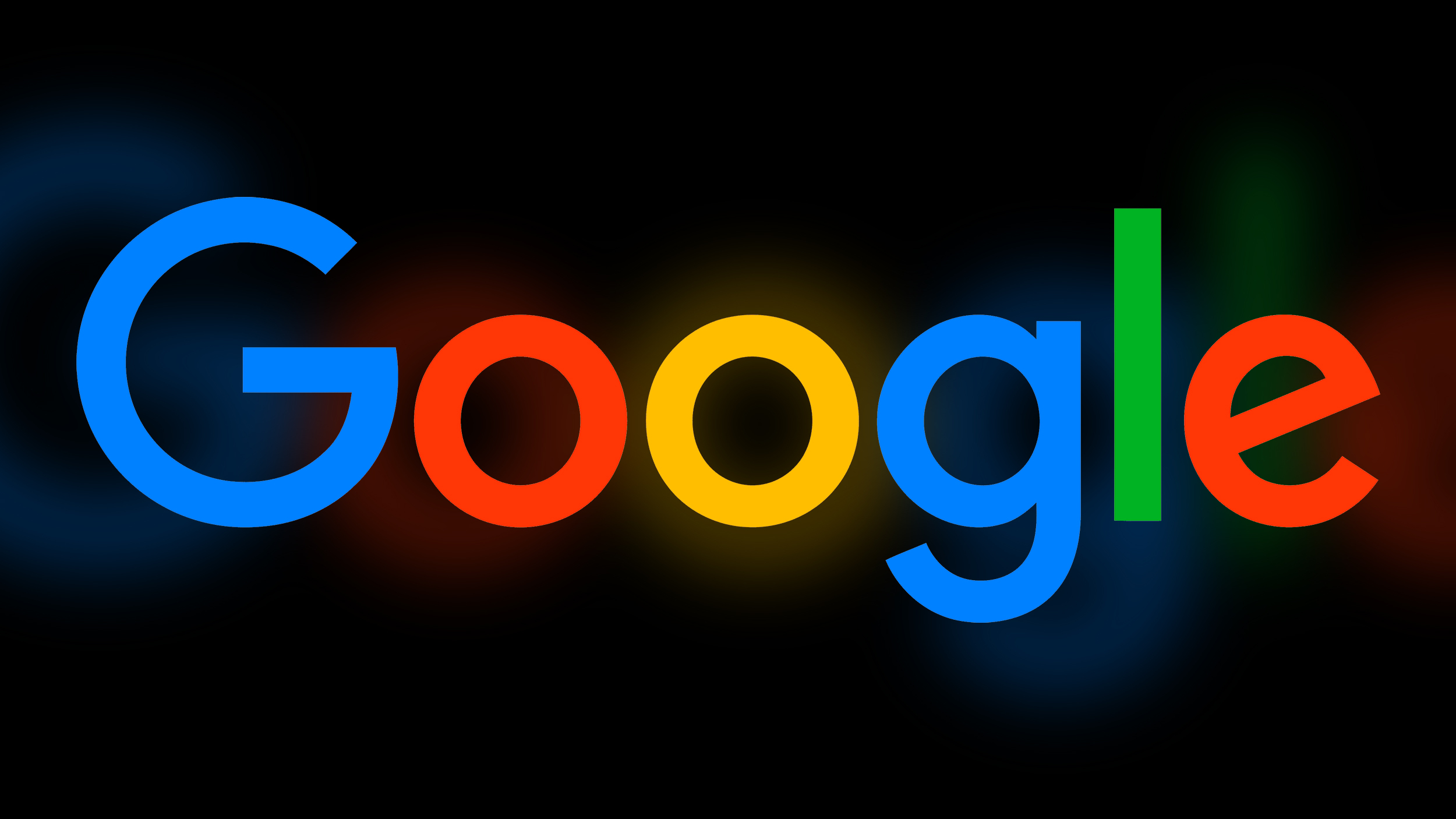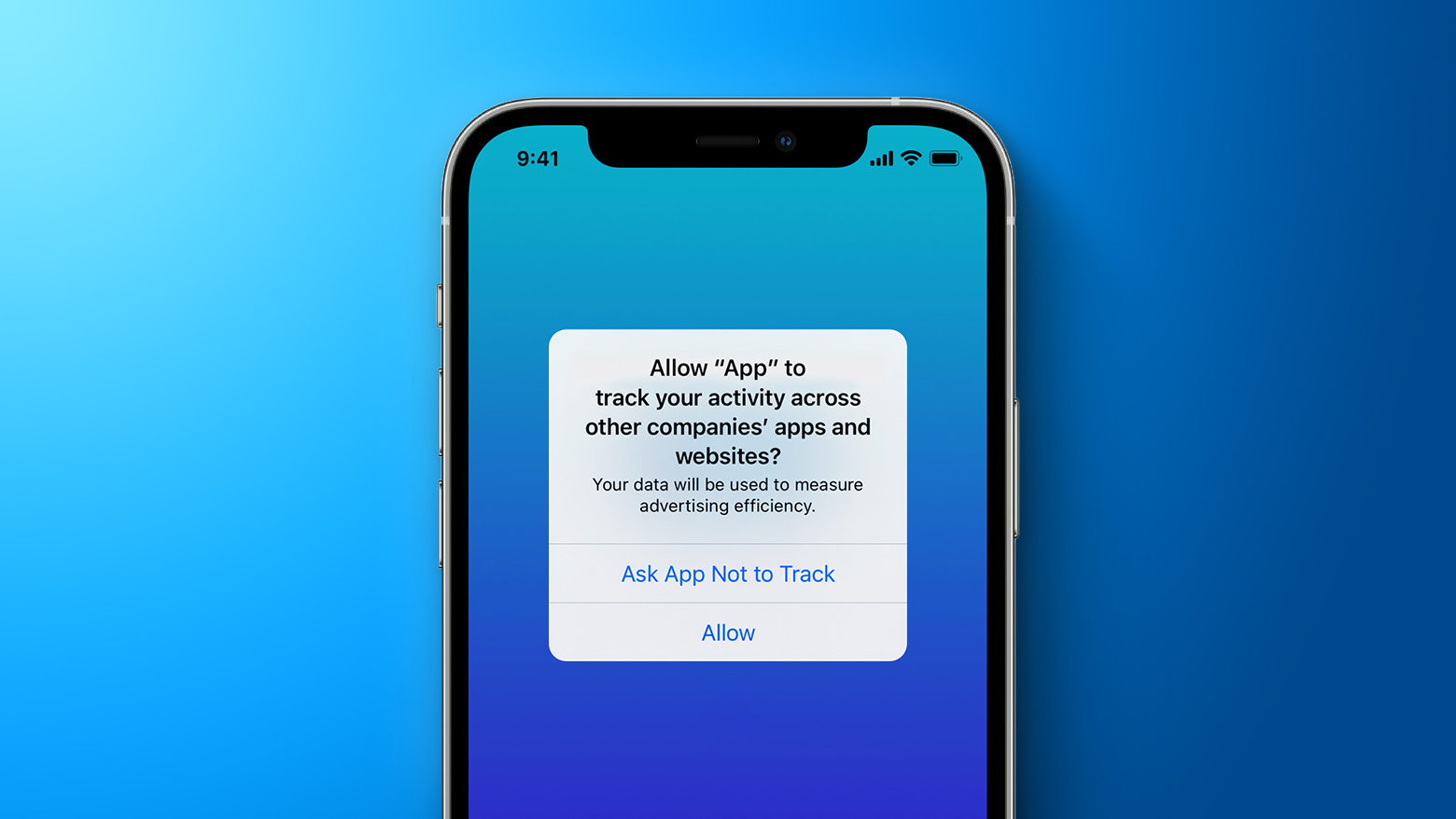Got a tip for us?
Let us know
Become a MacRumors Supporter for $50/year with no ads, ability to filter front page stories, and private forums.
Google Launching Privacy Sandbox to Limit Ad Tracking on Android, Calls 'Blunt Approaches' Like Apple's 'Ineffective'
- Thread starter MacRumors
- Start date
- Sort by reaction score
You are using an out of date browser. It may not display this or other websites correctly.
You should upgrade or use an alternative browser.
You should upgrade or use an alternative browser.
This is why I don't buy smart TVs. Mostly because a smart TV is like buying a TV with a built in VCR/DVD player, if the extra functionality breaks, then it could bring down the entire TV. Although it's getting very difficult to find TVs without "Smart" built in now-a-days.If you have a Smart TV, you are running Android or WebOS Rancheros
Think you might be confusing things here, Apple's tracking transparency feature is to stop your usage being tracked across multiple apps and websites so ads can be targeted. Apple being able to say half of it's users use spatial audio doesn't require tracking across multiple apps or websites, it's just looking at the usage data for that particular app - pretty sure most apps will be doing the same thing, so they can see if new features they add are used or not.No it don't!
"More Than Half of Apple Music Listeners Using Spatial Audio, Says Apple Exec"

More Than Half of Apple Music Listeners Using Spatial Audio, Says Apple Exec
In an interview with Billboard, Apple's vice president of Apple Music and Beats, Oliver Schusser, details the growth of and reaction to Spatial Audio and Lossless Audio on the streaming platform. Apple Music gained Spatial Audio and Lossless support in June 2021, and since, Apple has continued...www.macrumors.com
Looks like an anticompetitive tracking/customer spying to me, attention to the keywords!
Here's an analogy, the gas station, go fill up your vehicle and the station owner can tell 50% of people are using the premium pump because the storage tank is the same level as regular fuel - they can't tell what drink you might like to buy when paying for the fuel though.
Drive to the Google gas station, and fill up, now not only do they know 50% of people are using premium fuel but they also had somebody working in your favourite coffee shop that told them you like small cappuccinos - so when you pay they always ask if you want a cappuccino. They also had a person work in your favourite grocery store that told them you like pretzels, so they ask if you want some... and so on...
the iPhone matches up to a Mac perfectly.
Not so much android. still cant figure out how to use my android phone like an iPod. or transfer pictures easily.
So Privacy takes a back seat.
Not so much android. still cant figure out how to use my android phone like an iPod. or transfer pictures easily.
So Privacy takes a back seat.
Google’s new approach makes me wonder if they’ll fall under the radar of the various anti-trust regulators with power over the platform that shows significant favor to their own advertising offerings.Translation: we want to put all of the potential ad tracking vectors into our funnel, not the funnels of any competitors.
Just a reminder that Google is an advertising company, not a technology company.
Google was never trustableGoogle is taking extra steps to make sure they don’t end up like Facebook.
I don’t trust Google. It’s simple as that.
If you did you’d be trusting them anyway.I don't use Android, but if I did; I wouldn't trust Google
I'd be willing to pay upwards of $5 a month for the ability to stay in touch with my family and friends, with all the features of Facebook, with privacy, and no ads. But I don't think some of my friends would be willing to pay that.Would you pay £1/$1 a year for a social media platform with no ads, no tracking of any kind if it was really well coded and offered similar features to Facebook ?
I don't think $1 a year would be sustainable for your company. The reason Facebook "works" is because it's free, and as soon as they offer a paid tier, the people willing to pay for it are the people that the ad agencies need to show ads to, to make money.
I don't use Android, but if I did; I wouldn't trust Google
All corporations are using and selling your info. Stop believing in the false narrative of Apple.
Google has announced plans to strengthen user privacy on Android with a new initiative that will put an end to cross-app tracking on Android over the next two years, making it more difficult for advertisers to track users across other apps.

In a blog post, Google announced a multi-year project named "Privacy Sandbox" that introduces "more private advertising solutions" for mobile apps. The cornerstone of Privacy Sandbox will limit data shared with other third-party apps, making it more difficult for advertisers to build a profile of users for targeted advertising purposes.
The new initiative will draw similarities with Apple's App Tracking Transparency framework (ATT) that launched with iOS 14.5 last year. Unlike Apple's ATT, which requires all apps to ask for user consent before tracking them across other apps and websites, however, Google's Privacy Sandbox will limit app ability as default while also looking for new privacy-preserving ways to enable mobile advertising.
Announcing Privacy Sandbox today, Google seemingly took aim at Apple's ATT framework, saying "blunt approaches are proving ineffective" and that "other platforms have taken a different approach to ads privacy, bluntly restricting existing technologies used by developers and advertisers." The goal with Privacy Sandbox is for "users [to] know their information is protected, and developers and businesses have the tools to succeed on mobile," according to Google.

Apple's ATT prompt shown to all users when an app is first opened on iOS 14.5 and later
Soon after Apple previewed ATT and following its launch with iOS 14.5 last year, Facebook, now renamed to Meta, became vocal about its displeasure with the new requirement amid fears it would significantly impact its advertising business. Its fears seemingly became true, with the social media giant saying ATT will cost it $10 billion in lost revenue this year.
Google's approach is striking a different tone, with Snapchat, who had previously said ATT presented a "risk" to its business, saying in a statement that it is "excited to collaborate with Google to develop new privacy-preserving standards for Android." Google said it would receive input across the industry as it builds Privacy Sandbox over the next two years.
Article Link: Google Launching Privacy Sandbox to Limit Ad Tracking on Android, Calls 'Blunt Approaches' Like Apple's 'Ineffective'
Ineffective for whom? Google, Facebook, and anyone hawking invasive targeted advertising solutions.
Well, when I fill up my car, they don't know my name.Think you might be confusing things here, Apple's tracking transparency feature is to stop your usage being tracked across multiple apps and websites so ads can be targeted. Apple being able to say half of it's users use spatial audio doesn't require tracking across multiple apps or websites, it's just looking at the usage data for that particular app - pretty sure most apps will be doing the same thing, so they can see if new features they add are used or not.
Here's an analogy, the gas station, go fill up your vehicle and the station owner can tell 50% of people are using the premium pump because the storage tank is the same level as regular fuel - they can't tell what drink you might like to buy when paying for the fuel though.
Drive to the Google gas station, and fill up, now not only do they know 50% of people are using premium fuel but they also had somebody working in your favourite coffee shop that told them you like small cappuccinos - so when you pay they always ask if you want a cappuccino. They also had a person work in your favourite grocery store that told them you like pretzels, so they ask if you want some... and so on...
They might log my license plate, but has no access to the license plate owner infos.
Through the AppleID and ServerLogs they track you from the top down to the toes.
Just to quickly sum up a bit...
AppleID(Full name incl. Address)
|- Apple Music (usage and listening preferences)
|- Apple Store (usage and App preferences)
|- Apple Store Ads (interests)
|- Apple Apps usage (stats and interests)
|- Browser usage (all kind of stuff)
|- Third-Party App usage (kill competiton, explore new market, probably more)
|- Apple *OS usage (stats, obsolete features, probably more)
|- Apple Hardware usage (stats, sales, probably more)
|- Photos (CSAM, Face detection, locations)
|- Find My (includes all your locations)
|- App Logs(includes all kind of stuff)
|- Private Relay (Internet IPs with optional gatekeeping in the future)
|- Apple Watch (Your Activity)
|- Health App (Your Health Infos)
|- Contacts (All the people you communicate with)
|- iCloud (Your Documents and unencrypted iCloud Backups for scraping infos)
|- and much more...
Looks like Apple cross App track better than Third-Party Apps.
Simply join these Infos and you get the perfect transparent loyal customer, Apple really is not in a better light than Google.
Use both with care!
Last edited:
Google's already being sued as anticompetitive for this exact scheme. They call it "Project NERA."Google’s new scheme is anticompetitive because it coerces advertisers to shift spend from smaller media properties like The Dallas Morning News to large dominant properties like Google’s. Chrome is set to disable the primary cookie-tracking technology almost all non-Google publishers currently use to track users and target ads. A small advertiser like a local car dealership will no longer be able to use cookies to advertise across The Dallas Morning News and The Austin Chronicle. But the same advertiser will be able to continue tracking and targeting ads across Google Search, YouTube, and Gmail—amongst the largest sites in the world—because Google relies on a different type of cookie (which Chrome will not block) and alternative tracking technologies to offer such cross-site tracking to advertisers. By blocking the type of cookies publishers like The Dallas Morning News currently use to sell ads, but not blocking the other technologies that Google relies on for cross-site tracking, Google’s plan will pressure advertisers to shift to Google money otherwise spent on smaller publishers.

Project NERA: State Attorneys General claim Google is planning to turn the internet into a "walled garden"
We have long suspected that Google’s Privacy Sandbox plans were more about enriching the company than improving the privacy of internet users. Now 27 state attorneys have asserted the same in much more detail, claiming a vast conspiracy by Google to close off the internet and centralize all...
 mspoweruser.com
mspoweruser.com
so in your world tracking app usage is the same as tracking your usage across apps and share that data with ad companies? Really? Tell us what you think about Google effort here pleaseNo it don't!
"More Than Half of Apple Music Listeners Using Spatial Audio, Says Apple Exec"

More Than Half of Apple Music Listeners Using Spatial Audio, Says Apple Exec
In an interview with Billboard, Apple's vice president of Apple Music and Beats, Oliver Schusser, details the growth of and reaction to Spatial Audio and Lossless Audio on the streaming platform. Apple Music gained Spatial Audio and Lossless support in June 2021, and since, Apple has continued...www.macrumors.com
Looks like an anticompetitive tracking/customer spying to me, attention to the keywords!
Google does not share your data with other companies, they sell Ad-Slots by using your data, that's a big difference.so in your world tracking app usage is the same as tracking your usage across apps and share that data with ad companies? Really? Tell us what you think about Google effort here please
They would be studid to share your data(Their GOLD) with others.
Facebook was that stupid once and shared it with Cambridge Analytica.
That just sounds like a bunch of buzzwords that don't actually tell us how it's going to work. How can you maintain privacy while also allowing ads to track you across the internet? The fundamental idea of this is seriously flawed.Announcing Privacy Sandbox today, Google seemingly took aim at Apple's ATT framework, saying "blunt approaches are proving ineffective" and that "other platforms have taken a different approach to ads privacy, bluntly restricting existing technologies used by developers and advertisers." The goal with Privacy Sandbox is for "users [to] know their information is protected, and developers and businesses have the tools to succeed on mobile," according to Google.
When
Google has announced plans to strengthen user privacy on Android with a new initiative that will put an end to cross-app tracking on Android over the next two years, making it more difficult for advertisers to track users across other apps.

In a blog post, Google announced a multi-year project named "Privacy Sandbox" that introduces "more private advertising solutions" for mobile apps. The cornerstone of Privacy Sandbox will limit data shared with other third-party apps, making it more difficult for advertisers to build a profile of users for targeted advertising purposes.
The new initiative will draw similarities with Apple's App Tracking Transparency framework (ATT) that launched with iOS 14.5 last year. Unlike Apple's ATT, which requires all apps to ask for user consent before tracking them across other apps and websites, however, Google's Privacy Sandbox will limit app ability as default while also looking for new privacy-preserving ways to enable mobile advertising.
Announcing Privacy Sandbox today, Google seemingly took aim at Apple's ATT framework, saying "blunt approaches are proving ineffective" and that "other platforms have taken a different approach to ads privacy, bluntly restricting existing technologies used by developers and advertisers." The goal with Privacy Sandbox is for "users [to] know their information is protected, and developers and businesses have the tools to succeed on mobile," according to Google.

Apple's ATT prompt shown to all users when an app is first opened on iOS 14.5 and later
Soon after Apple previewed ATT and following its launch with i14.5 last year, Facebook, now renamed to Meta, became vocal about its displeasure with the new requirement amid fears it would significantly impact its advertising business. Its fears seemingly became true, with the social media giant saying ATT will cost it $10 lion in lost revenue this year.
Google's approach is striking a different tone, with Snapchat, who had previously said ATT presented a "risk" to its business, saying in a statement that it is "excited to collaborate with Google to develop new privacy-preserving standards for Android." Google said it would receive input across the industry as it builds Privacy Sandbox over the next two years.
Article Link: Google Launching Privacy Sandbox to Limit Ad Tracking on Android, Calls 'Blunt Approaches' Like Apple's 'Ineffective'
If you have a Smart TV, you are running Android.
Or just don't connect it to the internet and use as dumb tv. That's a simple workaround.This is why I don't buy smart TVs. Mostly because a smart TV is like buying a TV with a built in VCR/DVD player, if the extra functionality breaks, then it could bring down the entire TV. Although it's getting very difficult to find TVs without "Smart" built in now-a-days.
Last edited:
We have a fundamental problem with the Add based business model on the web. While I agree that we need control over what tracks us, the challenge I pose to all advertisers is to figure out a way to provide relevant ads without resorting to psychological warfare.Blocking ad tracking should be blunt. I'm fine with Apple's approach.
When I stopped using all of Google's services, switching from gmail to my own domain, Google to Duck Duck Go, and Chrome to Firefox, privacy stopped being an issue for me.
I still use Facebook all the time, but the ads that I find across the internet look the same as ads from any other media now. Advertisers have no idea who I am - they just know which website the ad is being served on, and that's fine with me.
I don't believe a word from Google OR APPLE on this matter. Apple is in Google's pocket.
Google pays Apple billions of dollars to:
1 - Make Google the default search provider in Safari.
2 - Leave tracking and ads untouched within Safari.
3 - Cripple all browsers that aren't Safari.
4 - Attack Facebook, Google's biggest competitor.
5 - Promote the idea that our privacy problems stem from Facebook, not Google.
I still use Facebook all the time, but the ads that I find across the internet look the same as ads from any other media now. Advertisers have no idea who I am - they just know which website the ad is being served on, and that's fine with me.
I don't believe a word from Google OR APPLE on this matter. Apple is in Google's pocket.
Google pays Apple billions of dollars to:
1 - Make Google the default search provider in Safari.
2 - Leave tracking and ads untouched within Safari.
3 - Cripple all browsers that aren't Safari.
4 - Attack Facebook, Google's biggest competitor.
5 - Promote the idea that our privacy problems stem from Facebook, not Google.
Register on MacRumors! This sidebar will go away, and you'll see fewer ads.


